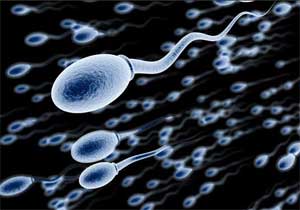- Home
- Editorial
- News
- Practice Guidelines
- Anesthesiology Guidelines
- Cancer Guidelines
- Cardiac Sciences Guidelines
- Critical Care Guidelines
- Dentistry Guidelines
- Dermatology Guidelines
- Diabetes and Endo Guidelines
- Diagnostics Guidelines
- ENT Guidelines
- Featured Practice Guidelines
- Gastroenterology Guidelines
- Geriatrics Guidelines
- Medicine Guidelines
- Nephrology Guidelines
- Neurosciences Guidelines
- Obs and Gynae Guidelines
- Ophthalmology Guidelines
- Orthopaedics Guidelines
- Paediatrics Guidelines
- Psychiatry Guidelines
- Pulmonology Guidelines
- Radiology Guidelines
- Surgery Guidelines
- Urology Guidelines
Defect in sperms may be cause of recurrent abortions, finds study

Scientists at Imperial College London in a study have found that male partners of females having repeated abortions had defect in sperms.They investigated the sperm quality of 50 men whose partners had suffered three or more consecutive miscarriages and found that the sperm of those involved in the study had higher levels of DNA damage,compared to men whose partners had not experienced miscarriages.
Recurrent miscarriage affects around one in 50 couples in the UK, and is defined as the consecutive loss of three of more pregnancies before 20 weeks gestation.The focus is usually on the woman’s body when multiple pregnancies fail, with tests usually looking for immune system problems or infection.The study team hopes that these findings may open new avenues to finding treatments to reduce the risk of miscarriage.
“Traditionally, doctors have focused attention on women when looking for the causes of recurrent miscarriage. The men’s health – and the health of their sperm – wasn’t analysed,” said Dr Channa Jayasena, the lead author of the research, from Imperial’s department of medicine.
"However, this research adds to a growing body of evidence that suggests sperm health dictates the health of a pregnancy. For instance, previous research suggests sperm has an important role in the formation of the placenta, which is crucial for oxygen and nutrient supply to the foetus."
The researchers tested 50 men whose partners had suffered recurrent miscarriages, defined as the loss of three consecutive pregnancies before 20 weeks’ gestation. All were patients at St Mary’s hospital, in London. The scientists analysed their sperm and compared the results with those of 60 similar male volunteers.
The sperm of the men in the miscarriage group had twice as much DNA damage as that in the control group, they found. The researchers, writing in the journal Clinical Chemistry, say this could be down to reactive oxygen species – molecules formed by cells in semen to protect sperm from bacteria and infection. In high enough concentrations, the molecules can cause significant damage to sperm cells.
There are molecules formed by cells in semen (the fluid that contains sperm cells) to protect sperm from bacteria and infection. However, in high enough concentrations the molecules can cause significant damage to sperm cells.
The results from the study revealed sperm from men whose partners had suffered miscarriage had a four-fold increase in the amount of reactive oxygen species compared to the control group.
Dr. Jayasena explained: "Although none of the men in the trial had any ongoing infection such as chlamydia – which we know can affect sperm health – it is possible there may be other bacteria from previous infections lingering in the prostate gland, which makes semen. This may lead to permanently high levels of reactive oxygen species."
The men whose partners had suffered miscarriage were older than the other group, with an average age of 37 compared to 30, and were slightly more overweight. The team is now investigating whether these factors may have affected the levels of reactive oxygen species.
Obesity can also cause fertility problems. Higher fat levels in the body could trigger an increase in reactive oxygen species.He added there is increasing evidence obesity can lower sperm health – possibly because high levels of body fat can trigger an increase in reactive oxygen species. Therefore the team are analysing the metabolic health of the 50 men in the study, and assessing weight and cholesterol levels.
Dr. Jayasena concluded: "Although this is a small study, it gives us clues to follow. If we confirm in further work that high levels of reactive oxygen species in semen increase the risk of miscarriage, we could try to develop treatments that lower these levels and increase the chance of a healthy pregnancy.
"It has taken medicine a long time to realise sperm health has a role to play in miscarriage – and that the cause doesn't lie solely with women. Now we realise both partners contribute to recurrent miscarriage, we can hopefully get a clearer picture of the problem and start to look for ways of ensuring more pregnancies result in a healthy baby."

Disclaimer: This site is primarily intended for healthcare professionals. Any content/information on this website does not replace the advice of medical and/or health professionals and should not be construed as medical/diagnostic advice/endorsement or prescription. Use of this site is subject to our terms of use, privacy policy, advertisement policy. © 2020 Minerva Medical Treatment Pvt Ltd